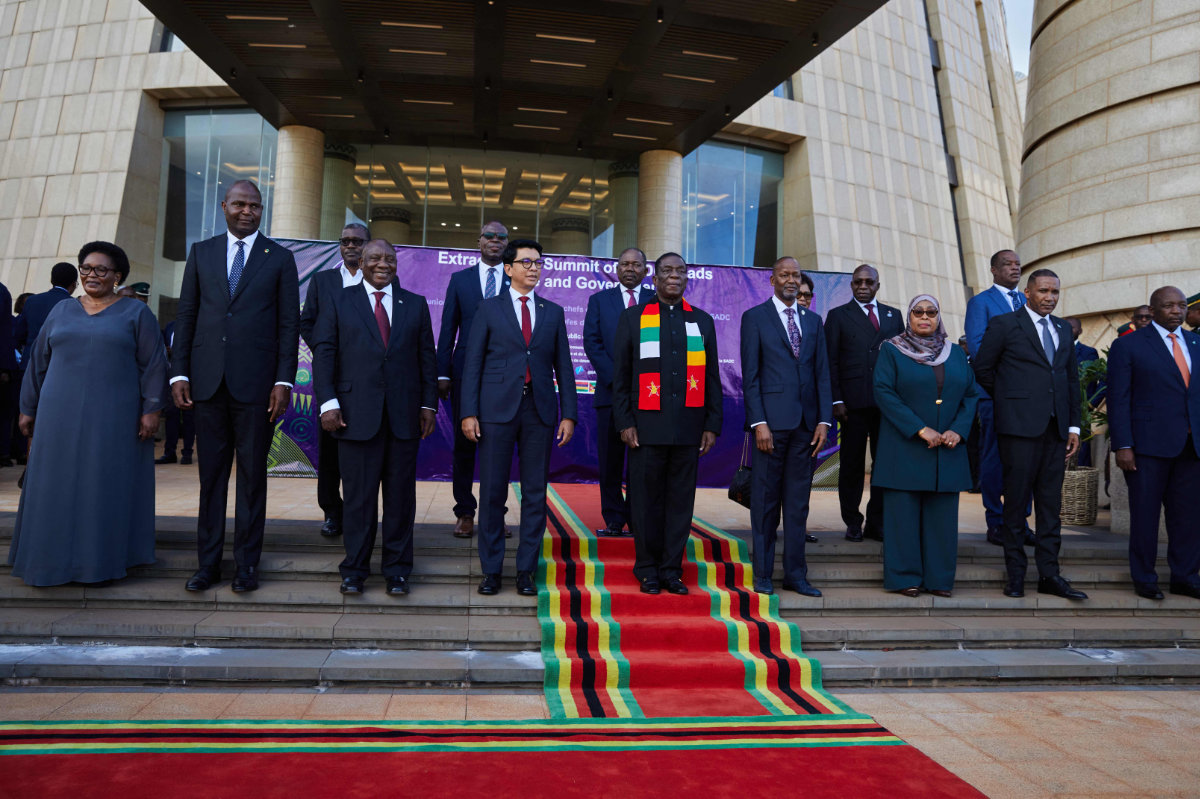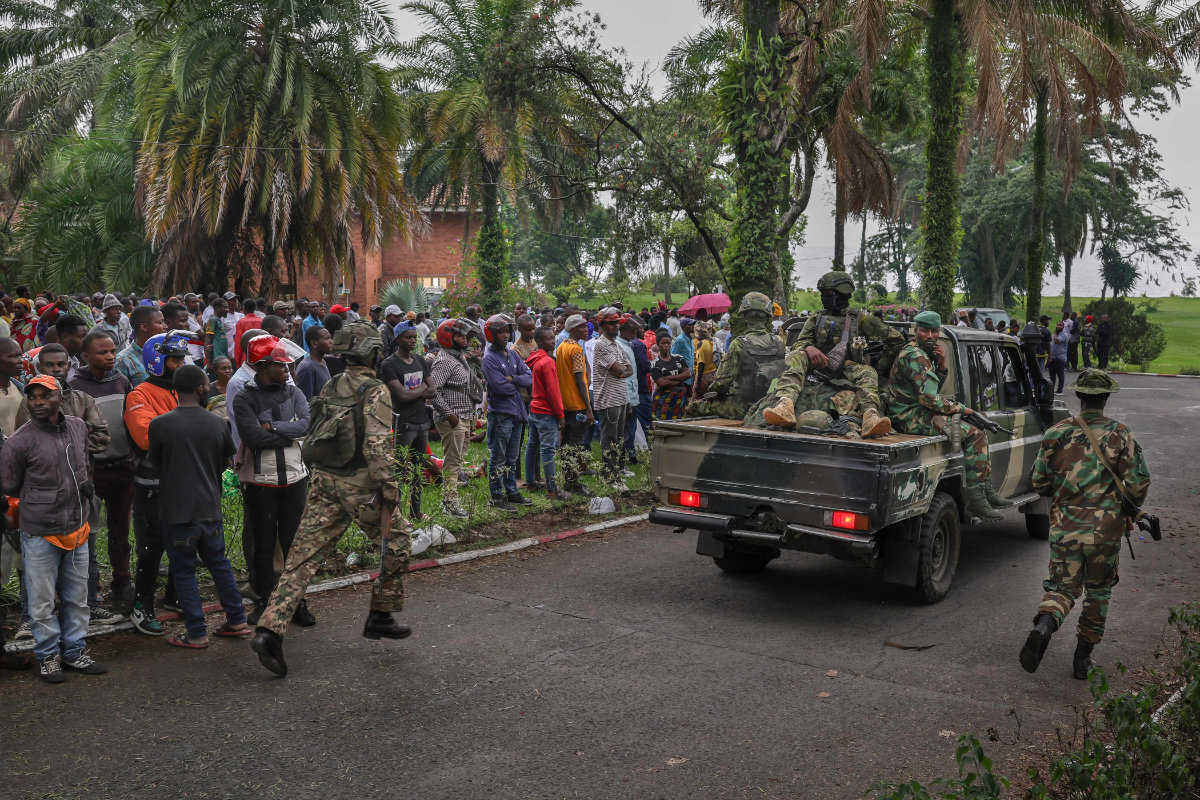KYIV, Ukraine: Ukraine on Wednesday halted Russian gas supplies to European customers through its pipeline network after a prewar transit deal expired at the end of last year.
Ukraine’s energy minister, Herman Halushchenko, confirmed on Wednesday morning that Kyiv had stopped the transit “in the interest of national security.”
“This is a historic event. Russia is losing markets and will incur financial losses. Europe has already decided to phase out Russian gas, and (this) aligns with what Ukraine has done today,” Halushchenko said in an update on the Telegram messaging app.
At a summit in Brussels last month, Ukrainian President Volodymyr Zelensky vowed that Kyiv would not allow Moscow to use the transits to earn “additional billions ... on our blood, on the lives of our citizens.” But he had briefly held open the possibility of the gas flows continuing if payments to Russia were withheld until the war ends.
Russia’s Gazprom said in a statement on Wednesday morning that it “has no technical and legal possibility” of sending gas through Ukraine, due to Kyiv’s refusal to extend the deal.
Even as Russian troops and tanks moved into Ukraine in 2022, Russian natural gas kept flowing through the country’s pipeline network — set up when Ukraine and Russia were both part of the Soviet Union — to Europe, under a five-year agreement. Gazprom earned money from the gas and Ukraine collected transit fees.
Before the war, Russia supplied nearly 40 percent of the European Union’s pipeline natural gas. Gas flowed through four pipeline systems, one under the Baltic Sea, one through Belarus and Poland, one through Ukraine and one under the Black Sea through Turkiye to Bulgaria.
After the war started, Russia cut off most supplies through the Baltic and Belarus-Poland pipelines, citing disputes over a demand for payment in rubles. The Baltic pipeline was blown up in an act of sabotage, but details of the attack remain murky.
The Russian cutoff caused an energy crisis in Europe. Germany had to shell out billions of euros to set up floating terminals to import liquefied natural gas that comes by ship, not by pipeline. Users cut back as prices soared. Norway and the US filled the gap, becoming the two largest suppliers.
Europe viewed the Russian cutoff as energy blackmail and has outlined plans to completely eliminate Russian gas imports by 2027.
Russia’s share of the EU pipeline natural gas market dropped sharply to about 8 percent in 2023, according to data from the EU Commission. The Ukrainian transit route served EU members Austria and Slovakia, which long got the bulk of their natural gas from Russia but have recently scrambled to diversify supplies.
Gazprom halted supplies to Austria’s OMV in mid-November over a contractual dispute, but gas flows through Ukraine’s pipelines continued as other customers stepped in. Slovakia this year inked deals to begin buying natural gas from Azerbaijan, and also to import US liquefied natural gas through a pipeline from Poland.
Among the hardest-hit will be EU candidate country Moldova, which was receiving Russian gas via Ukraine and has brought in emergency measures as residents brace for a harsh winter and looming power cuts.
Separately from Kyiv’s decision to let the transit deal expire, Gazprom said last month it will halt gas supplies to Moldova starting on Jan. 1, citing unpaid debt. Gazprom has said Moldova owes close to $709 million for past gas supplies, a figure the country has fiercely disputed, citing international audits.
Heating and hot water supplies were abruptly cut off on Wednesday to households in Transnistria, Moldova’s breakaway region that has for decades hosted Russian troops, as Russian natural gas stopped flowing to the territory, local transit operator Tiraspoltransgaz-Transnistria said.
In an online statement, the company urged residents to gather household members together in a single room, hang blankets over windows and balcony doors, and use electric heaters. It said some key facilities including hospitals were exempt from the cuts.
On Dec. 13, Moldova’s parliament voted in favor of imposing a state of emergency in the energy sector, as fears mounted that the gas shortages could trigger a humanitarian crisis in Transnistria, for decades dependent on Russian energy supplies.
Many observers have predicted that the looming energy shortage could force people in the separatist territory to travel to Moldova proper, seeking basic amenities to get through the harsh winter and placing further strain on resources.
Moldova, Ukraine and EU politicians have repeatedly accused Moscow of weaponizing energy supplies.
On Wednesday, Polish Foreign Minister Radek Sikorski called Ukraine’s move to halt supplies a “victory” for those opposed to the Kremlin’s policies. In a post on X, Sikorski accused Moscow of systematic attempts to “blackmail Eastern Europe with the threat of cutting off gas supplies,” including through a Baltic pipeline bypassing Ukraine and Poland and running directly to Germany.
Slovakian PM Robert Fico Slovakia’s Prime claimed Wednesday that the end of gas flows via Ukraine “will drastically affect us all in the EU but not Russia.”
Fico, whose views on Russia have sharply differed from the European mainstream, has previously hit out at Kyiv’s refusal to extend the transit deal, and threatened to end electricity supplies to Ukraine in response.
Moscow can still send gas to Hungary, as well as non-EU states Turkiye and Serbia, through the TurkStream pipeline across the Black Sea.
The steady reduction of Russian gas supplies to European countries has also spurred them to hasten the integration of Ukraine’s energy grids with its neighbors to the west.
Last week, private Ukrainian energy utility DTEK said it had received its first shipment of liquefied natural gas from the US, to be delivered through a newly expanded network spanning six countries from Greece to Ukraine – and marking a significant step in reducing regional dependence on Russian energy.
Separately, overnight into New Year’s Day, Russia launched a drone strike on Kyiv that left two people dead under the rubble of a damaged building, according to the city administration. At least six people were wounded across the Ukrainian capital, according to Mayor Vitali Klitschko.
Russian shelling also killed a man and wounded two women in Ukraine’s southern city of Kherson, regional authorities reported.
Ukraine halts transit of Russian gas to Europe after a prewar deal expired
https://arab.news/jn2c9
Ukraine halts transit of Russian gas to Europe after a prewar deal expired

- Ukraine’s energy minister said Kyiv had stopped the transit “in the interest of national security”
- Until now, Russian natural gas kept flowing through Ukraine’s pipeline network after the 2022 invasion




























